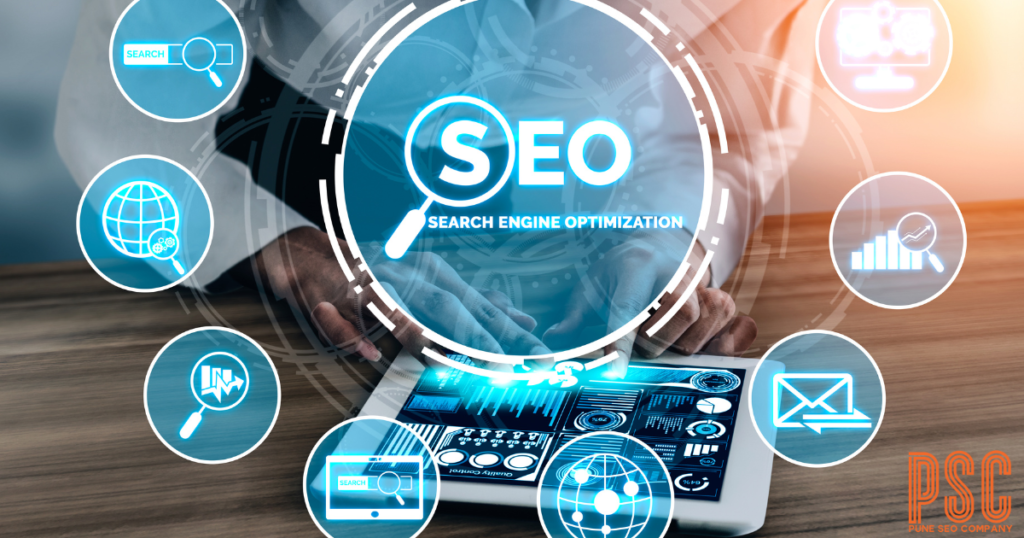AI in SEO vs Traditional SEO: What Truly Works Better in 2025?

Search Engine Optimization (SEO) continues to be a key player in digital marketing. It ensures visibility, drives traffic, and ultimately helps brands grow online. But SEO is evolving—fast. Artificial Intelligence (AI) is no longer just a buzzword in this space. It’s reshaping how we think about search rankings, content optimization, and performance analytics.
The question many marketers and business owners are asking is this: Is AI-powered SEO better than traditional SEO? Or is it just another tool to support old-school strategies?
Traditional SEO: Human-Driven Tactics
Traditional SEO relies heavily on human expertise. It includes manual research, optimization, and a strategic approach that often takes time but can build long-lasting results.
Key Elements of Traditional SEO:
- Keyword Research: Done manually using platforms like Google Keyword Planner, SEMrush, or Ubersuggest. The focus is on high-volume, relevant search terms.
- On-Page SEO: Writing meta titles, descriptions, headers, and content based on selected keywords. This also includes URL structuring and internal linking.
- Off-Page SEO: Earning backlinks through guest posts, outreach, and directory submissions. Building domain authority is the goal here.
- Technical SEO: Optimizing website speed, mobile-friendliness, indexability, and structured data.
- Performance Tracking: Using tools like Google Analytics and Google Search Console to measure rankings, traffic, and user behavior.
Strengths of traditional SEO lie in its depth and control. But it’s time-consuming, difficult to scale quickly, and often dependent on consistent manual work.
What is AI-Powered SEO?
AI in SEO uses machine learning, automation, and natural language processing to streamline many of the time-intensive tasks in traditional SEO. It helps marketers analyze data, predict trends, and generate content faster and more accurately.
Key Features of AI in SEO:
- AI-Driven Content Optimization: Tools like Clearscope, MarketMuse, and Surfer SEO analyze top-performing content and recommend structure, keyword usage, and length for better ranking.
- Keyword Clustering: AI can group similar search intents to target more keywords with fewer pages—ideal for content efficiency.
- Automated Audits: AI crawlers like Screaming Frog or Sitebulb (when enhanced with AI) identify technical SEO issues faster than manual checks.
- Behavioral Analysis: AI tracks user engagement and makes suggestions based on behavioral data. For instance, adjusting layout or content to reduce bounce rates.
- AI Content Creation: Platforms such as Jasper and ChatGPT assist with writing SEO-friendly content quickly, saving time on initial drafts.
The strength of AI in SEO lies in its speed, scalability, and data precision. However, it lacks the human touch in storytelling, creativity, and brand voice.
Comparing AI in SEO vs Traditional SEO
Here’s how both approaches stack up against each other:
| Feature | Traditional SEO | AI-Powered SEO |
| Speed | Manual and slower | Fast, real-time analysis |
| Accuracy | Relies on expertise | Data-driven decisions |
| Content Creation | Human writers | AI-assisted or AI-generated |
| Keyword Strategy | Based on manual research | Smart clustering and intent mapping |
| Adaptability | Slower response to changes | Learns from live data |
| Cost | High for manual labor | Tool subscription fees, scalable |
| Scalability | Limited by human resources | Easy to scale with automation |
Real-World Results: Which Performs Better?
1. Search Rankings and Visibility
Traditional SEO is great for long-term organic growth, especially in evergreen content niches. It builds authority over time.
AI in SEO, however, is quicker to adapt. It uses real-time data to optimize content around current search engine algorithms. This makes it ideal for ranking on competitive keywords or jumping on trending topics.
2. Content Quality and Engagement
AI-optimized content typically performs better in terms of keyword relevance and SERP alignment. It’s built to meet algorithmic expectations.
That said, human-written content still wins when emotional resonance, storytelling, and persuasive tone matter—areas where AI often falls short.
3. Conversion Rates
AI in SEO tools can personalize content based on user behavior, which significantly boosts conversion rates. Traditional SEO strategies can do this, but not without additional manual setup and A/B testing.
4. Time Efficiency
AI saves 60–70% of the time spent on SEO tasks like audits, keyword research, and performance tracking. This allows teams to focus on strategy and creativity rather than repetitive tasks.
Challenges of Using AI in SEO
While AI has undeniable advantages, it isn’t without flaws:
- Limited Creativity: AI can suggest patterns, but it can’t replicate the originality or emotional nuance of a human writer.
- Risk of Over-Optimization: AI-generated content can sometimes sound robotic or overstuffed with keywords.
- Steep Learning Curve: Not all teams are ready to adopt AI in SEO tools effectively. It takes time and training.
- Lack of Brand Voice: AI struggles with nuanced tone and personal branding unless guided by human input.
When Should You Use Traditional SEO?
There are scenarios where human-led SEO is more effective:
- Brand Storytelling: Establishing a unique voice or tone requires human creativity.
- Thought Leadership: In industries like healthcare, finance, or law, content needs to showcase credibility and deep expertise (E-E-A-T principles).
- Relationship-Based Outreach: Building backlinks through genuine connections still requires personal interaction.
When AI in SEO Makes Sense
AI in SEO delivers strong results in situations like:
- Scaling Content Production: Great for e-commerce sites or agencies with hundreds of pages to optimize.
- Data-Driven Campaigns: When large datasets are involved and precision is crucial.
- Competitive Niches: AI adapts quickly to changes in SERP structure, algorithm updates, and user search behavior.
- Generative Engine Optimization (GEO): AI in SEO is ideal for optimizing content for engines like ChatGPT or Google SGE.
The Smartest Approach: Hybrid SEO
The most successful digital marketers in 2025 are using a combination of both AI in SEO and human-led strategies.
Let AI in SEO handle:
- Technical audits
- SERP and search intent analysis
- Content structure and optimization suggestions
- Large-scale performance tracking
Let humans focus on:
- Emotional storytelling
- Writing with tone, humor, and brand identity
- Building relationships and earning quality backlinks
Final Verdict: Which Is Better?
AI-powered SEO excels in speed, accuracy, and scalability. It’s transforming the way we optimize content and track performance. For large-scale operations, it’s a major time-saver and performance booster.
Traditional SEO, while slower, is still essential for building brand voice, trust, and long-term authority.
The best strategy isn’t choosing one over the other—it’s knowing when and how to use both. By combining AI’s efficiency with human creativity, you can build an SEO plan that’s both powerful and authentic.

